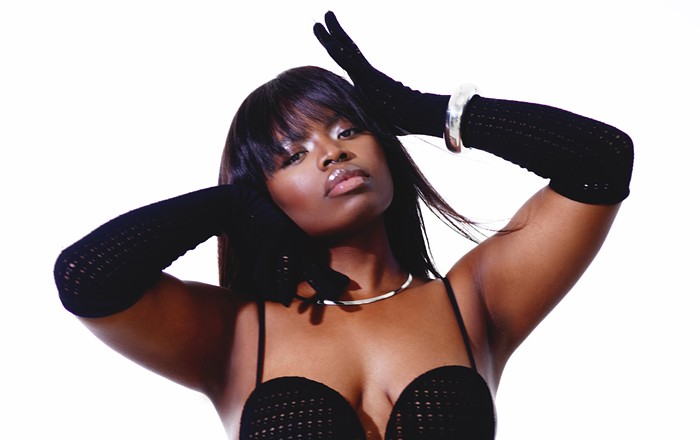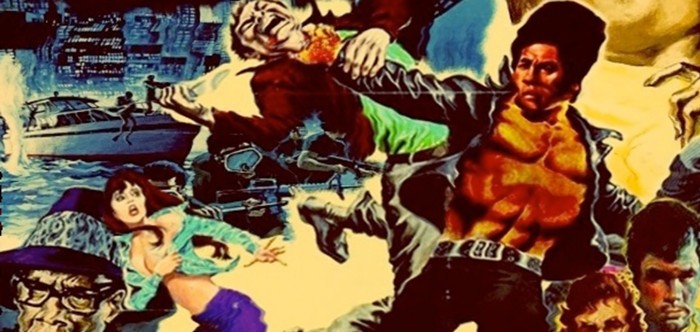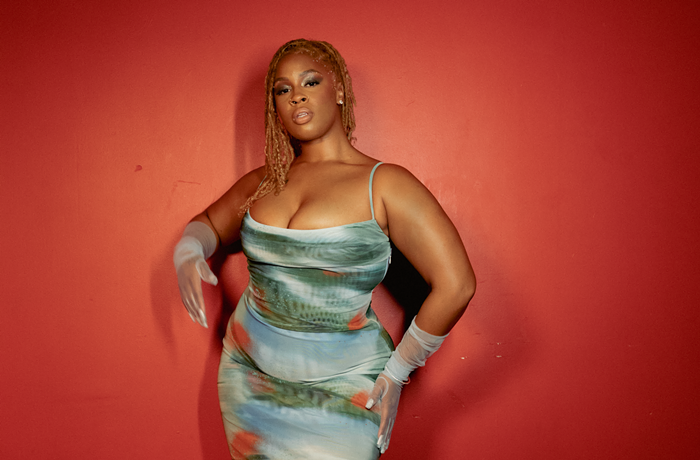Thur May 5 Crystal Ballroom
1332 W Burnside
In a return that is only slightly less momentous than that of God's son, the original lineup of Leeds, England quartet Gang of Four have reunited and are touring America a quarter century after their peak. And if the response at January's sold-out U.K. shows is any indication, Gang of Four's resurrection is cause for mass celebration.
The time couldn't be riper for a Gang of Four comeback. The landscape's lousy with tacky Go4 knockoffs, with few bands doing the legacy justice. What we all want are the originators of that galvanic, tensely funky post-punk sound that's raged through rock's underground for the last few years.
"The pressure had been building for about two or three years for us to get back together, because of the zeitgeist," admits Dave Allen, the mensch responsible for laying down bass lines as militant as Black Panther manifestos. "Every review you'd read mentioned Gang of Four. Every band seemed to be borrowing from our music."
He's only slightly exaggerating. The music created by Allen, drummer Hugo Burnham, guitarist Andy Gill, and vocalist/melodica player Jon King on their first two albums--1979's Entertainment! and 1981's Solid Gold--and early EPs has been justifiably influential. While Go4 drew sustenance from punk's catalytic anger, they paradoxically opened up its rigid structures and tightened the rhythm section in a way that made James Brown's seem sloppy. Dub's spacious production techniques, emphasis on bass, and melodica usage also informed Go4's approach. While Allen's über-funky bass lines tunefully led the way, Gill rhythmically sprayed caustic, angular guitar chords like a cross between PiL's Keith Levene and Jimi Hendrix. Burnham's drumming managed to be both militaristically disciplined and funky as hell. King's yelped lyrics trenchantly delineated personal politics and critiqued social and political issues with rare wit. Nobody then or since has penned lines with the perspicacity of "Our bodies make us worry" ("Contract") and "Guerilla war struggle is a new entertainment" ("5.45").
Time has been kind to Gang of Four's early recordings because they eschewed production gimmickry and instrumental flamboyance; instead, they focused on writing concise, memorable songs to which you could dance your ass off while you absorbed piquant thoughts. And, by the way, they were monumentally talented and selfless. That's why you hear so many current bands nailing the superficial Go4 traits, but failing to translate them into the potent bundles of churning angst and insight these post-punk pioneers produced.
So, you must be wondering, what lured these innovators back to the rigors of touring 24 years after Allen departed Go4 to join Shriekback? Dire financial straits?
"[I]t's not about a financial reward," Allen says "We're getting paid well for our work, as we should. [But] if all these bands keep name-checking us, that's great, but how does [our music] stand up live? Because the Gang of Four live experience is a whole lot different than the records. The level of energy, the intensity of the show--that separates us from a lot of other bands, never mind the ones that sound like us now. The idea of doing it was quite interesting and exciting. We'll come back and show you how good we actually were."
A rave review by the New York Times' Jon Pareles of Go4's secret London gig spurred interest among American promoters. As these geezers burned the rust off several Go4 classics to prepare for the U.S. tour, they experienced no personality conflicts.
"In the first incarnation, the chemistry that created the mayhem that was the live show came from four headstrong people--with egos," Allen says. "This time around we're definitely older and wiser. There seems to be less anxiety and less flying off the handle at the smallest thing. Twenty-odd years ago we were consuming a lot of alcohol and other things, which didn't really help. I don't have any desire to get blotto every night--just every other night will do now."
As expected with Gang of Four, this tour isn't about nostalgia. "If everything we're singing about is still relevant," Allen says, "then I think that's the most important part of this. We can still challenge things."


















